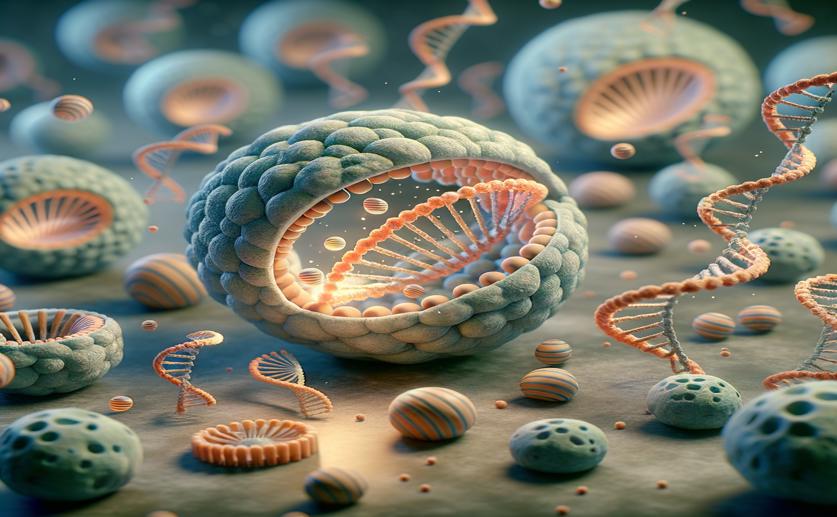
Uncovering Natural Gene Variants That Disrupt Cell Division
Greg Howard
15th March, 2024

Image Source: Natural Science News, 2024
Key Findings
- Study from Queen Mary, University of London identified 141 gene variants linked to chromosome stability
- Two key genes, Astrin and SKA3, were found to be crucial for correct chromosome distribution during cell division
- Some gene variants were harmful, causing chromosome misalignment, while others were harmless due to cellular resilience mechanisms
References
Main Study
1) Search for chromosomal instability aiding variants reveal naturally occurring kinetochore gene variants that perturb chromosome segregation.
Published 15th March, 2024
https://doi.org/10.1016/j.isci.2024.109007
Related Studies
2) Counteraction between Astrin-PP1 and Cyclin-B-CDK1 pathways protects chromosome-microtubule attachments independent of biorientation.
3) Contribution of histone variants to aneuploidy: a cancer perspective.
4) Opportunities and challenges for deep learning in cell dynamics research.
5) Rare variant associations with plasma protein levels in the UK Biobank.



 11th March, 2024 | Greg Howard
11th March, 2024 | Greg Howard